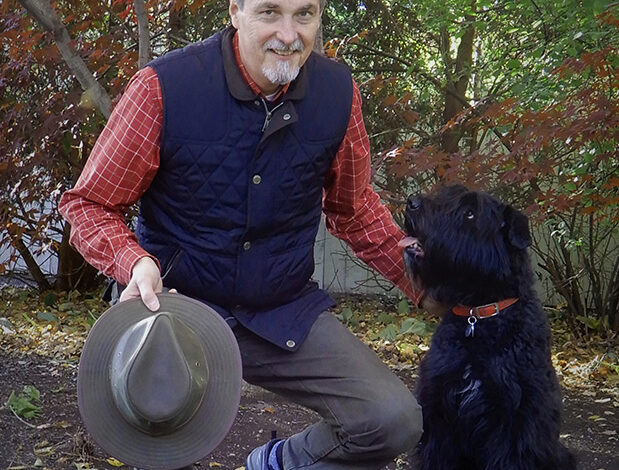
Tell us about yourself and how many books you have written.
I enjoyed a very satisfying commercial real estate career until the pandemic placed a big speed bump on the road of my life. So suddenly out of work, I took the opportunity to chart a new course, to get off the hamster wheel, leave the world of responsibility and stress, and pursue a dream. For this last year, it has never felt like work.
What is the name of your latest book and what inspired it?
The First Wolf Pack: A Dog’s Fable, my first book, was inspired by several disparate factors; Love of dogs and wolves, fascination with ancient foundational myths, the grandeur of God’s creation, and contemplating the purpose of fireflies in the grand scheme of creation. Somehow these things coalesced into a story about overcoming ignorance, narcissism, suspicion, and self-pity.
Do you have any unusual writing habits?
I like to work early in the morning. I write for hours on end when it starts to flow. I don’t force myself to write when I am upset or agitated by things outside of my writing. Some evenings, especially while we are cooking dinner together, I love to tell Barbara (my wife and publisher) the progress of the characters, and the ways the plot and subplots are heading. Verbalizing this way allows me to hear things outside of my head, and my wife is very helpful with questions, comments, and suggestions.
What authors, or books have influenced you?
Dean Koontz, John Steinbeck, Ernest Hemingway, Stephen Crane’s The Red Badge of Courage
What are you working on now?
A gritty story about xenophobia, bigotry, charity, and compassion set in 1920s and 1930s Chicago.
What is your best method or website when it comes to promoting your books?
As a newbie I am still learning. Right now, I use Facebook, Reedsy, Goodreads, LinkedIn, and am exploring others. My book is only available on Amazon at this time.
Do you have any advice for new authors?
Consider Keats Theory of Negative Capability. It gave me the freedom to not feel compelled to outline my stories, but instead, to tap into something creative that is within me but also something creative that is outside of me. I let the story tell itself, not trying to provide answers to every question that pops up during the drafting.
If your characters wish to advance themselves, but you don’t know exactly where they might be going, trust them enough to follow them. They will tell you their story if you let them.
What is the best advice you have ever heard?
With respect to writing: I recently watched a long-form interview of Dean Koontz from 2012 that made me believe I could write novels and that I should. Koontz emphasizes that all work should have a moral purpose—there is an urgent need in our world for stories containing the hope to counteract the negative views that dominate our culture.
Without quoting Keats, he did address something like Negative Capability when saying “Get in touch with something bigger than yourself, and let it speak to you.” And further described how his first best seller was born—he developed characters and then figured out how they became intertwined, at times following them.
And he quotes T.S. Eliot: “the one thing that never changes, the eternal battle of good and evil.”
What are you reading now?
While actively writing fiction, I may read some non-fiction BUT I do not read the fiction of others. I am concerned that reading other works will potentially derail the uniqueness of my novel as it is in progress, and to potentially interfere with my creativity. While writing The First Wolf Pack, I read Ralph Martin’s A Church in Crisis. A long time ago my employer at that time gave personality surveys to people in leadership positions. I had a strong need to figure things out for myself, preferring to not follow instructions or to comfortably follow others. I needed to take things apart and rebuild them to know exactly how it worked, so to speak…then to rebuild it my way.
What’s next for you as a writer?
I want to finish my second novel during the summer of 2022. It is hard for me to look much further ahead than that. But, I do have two story ideas bouncing around in my head that might launch a third novel.
If you were going to be stranded on a desert island and allowed to take 3 or 4 books with you what books would you bring?
The Bible, something from ancient Greece, perhaps Homer’s the Illiad and Odyssey, something from the height of English literature, perhaps Pride and Prejudice by Jane Austen, and lastly, something by Steinbeck or Hemingway.
Author Websites and Profiles
J. Daniel Reed Website
J. Daniel Reed Amazon Profile
J. Daniel Reed’s Social Media Links
Goodreads Profile
Facebook Profile


Recent Comments